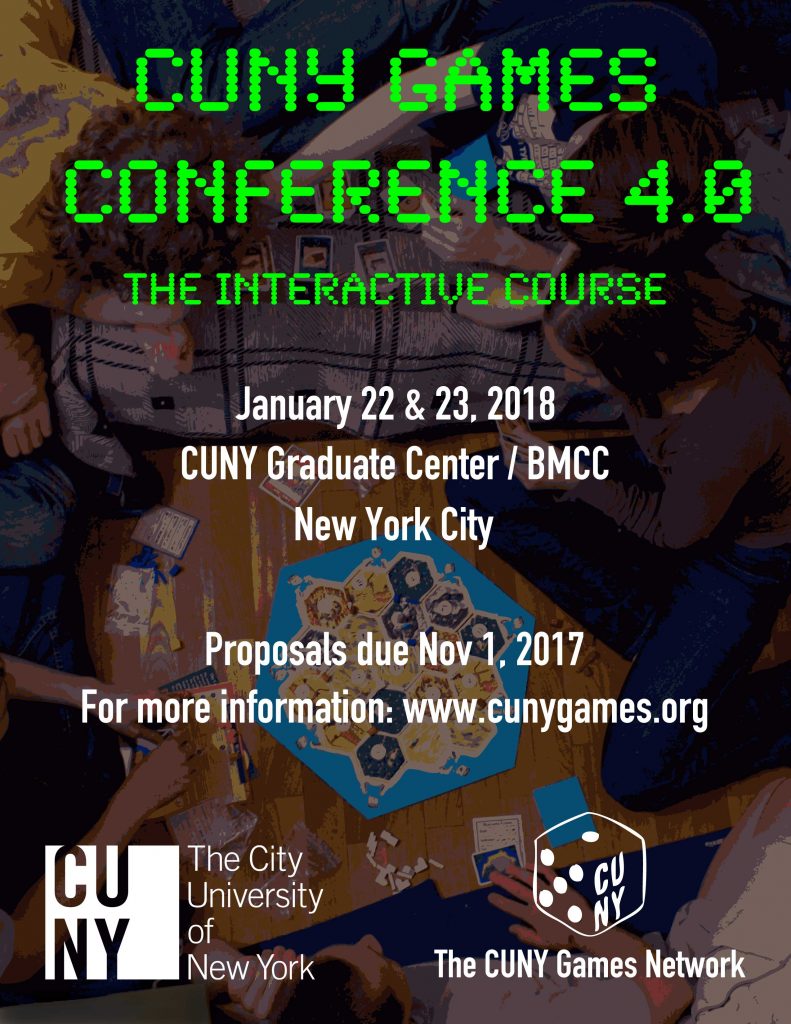EdSurge news recently published a summary of the 2017 Games for Change Festival that happened in New York City this week. Please follow the link below for the full article. I've attended G4C for several years now, and my experience has waxed and waned as the conference has shifted its focus from … Continue Reading ››
CUNY Games Conference 4.0: CFP Announcement
 Our Call for Proposals is now open! Proposals are due on November 1, 2017. Please forward far and wide!
The CUNY Games Network of the City University of New York is excited to announce The CUNY Games Conference 4.0: The Interactive Course to be held on January 22 and 23, 2018 at the Graduate … Continue Reading ››
Our Call for Proposals is now open! Proposals are due on November 1, 2017. Please forward far and wide!
The CUNY Games Network of the City University of New York is excited to announce The CUNY Games Conference 4.0: The Interactive Course to be held on January 22 and 23, 2018 at the Graduate … Continue Reading ›› ESA Publishes 2016 Computer & Video Game Industry Report
The Entertainment Software Association has published it's 2016 report on usage of computers and video games. As the preface to the report states "The study is the most in-depth and targeted survey of its kind, gathering data from more than 4,000 American households. Heads of households and the most frequent gamers within each household were … Continue Reading ››






You must be logged in to post a comment.